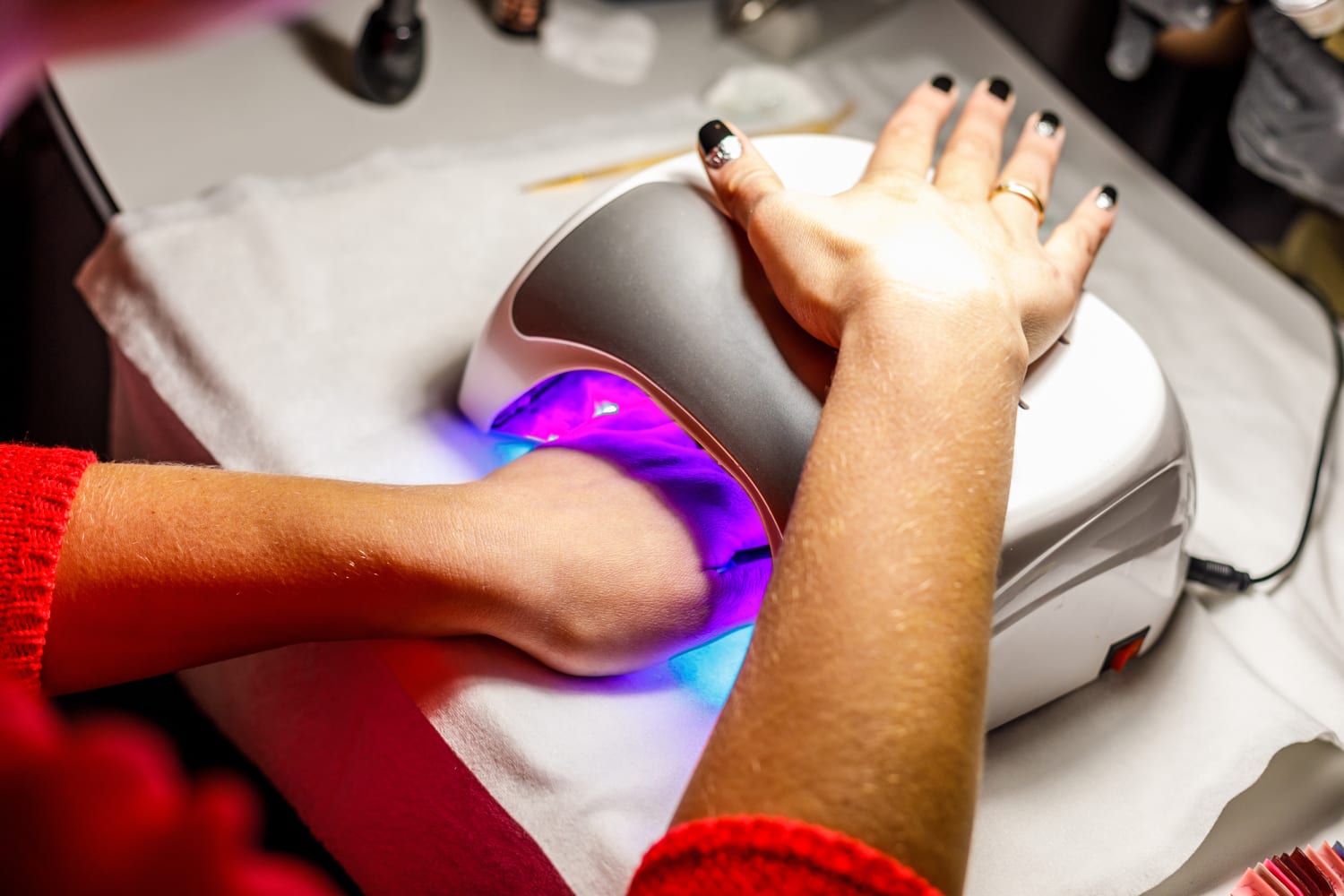[ad_1]

For more than a decade, researchers have suspected that the ultraviolet nail dryers used for gel manicures might be associated with a higher risk of skin cancer if they are used routinely. The dryers expose people to ultraviolet A (UVA) radiation, which is known to cause skin cancer from other sources, such as sun exposure and tanning beds.
A study published last week offers new evidence: It found that radiation from UV nail dryers can damage DNA and cause permanent mutations in human cells — which in turn is linked to cancer risk.
Such cell damage “is just one step along the pathway to cancer,” said Dr. Julia Curtis, an assistant professor at the University of Utah dermatology department, who wasn’t involved in the new research.
The study didn’t look at real people, however: The researchers exposed cells derived from humans and mice to UV light from nail dryers. They observed that after 20 minutes, 20% to 30% of the cells had died. After three consecutive 20-minute sessions, 65% to 70% of cells had died.
Previous studies have linked only a few instances of skin cancer to gel manicures. A 2020 analysis identified two women in the U.S. who developed melanoma on the backs of their hands from 2007 to 2016. Both had gotten gel manicures for years. Overall, however, the researchers determined that that type of manicure — which involves applying a gel polish that must then set under UV lamps — had little to no association with cancer.
“At this point, I would recommend or advise people to just weigh the risk,” said one of the new study’s authors, Maria Zhivagui, a postdoctoral researcher at the University of California, San Diego. “Understand what this is doing. There is damage at the DNA level. We don’t know if it’s carcinogenic.”
Scientists will need to study the effects of UV nail dryers in actual humans before they can make definitive conclusions about cancer risk, she added. Both Zhivagui and Curtis said the process might take 10 more years, given the slow pace of research.
“UV nail lamps didn’t really get popular until about the 2000s, I would say, so making that cause and effect can be very difficult,” Curtis said.
Even so, Curtis and Zhivagui said that in their own lives, they don’t ever get manicures that require UV nail dryers.
“You’re not going to find a dermatologist who doesn’t say that UVA is aging us and increasing our risk of skin cancer,” said Dr. Loretta Davis, the chair of the dermatology department at Augusta University in Georgia. “So anything that’s purposely done with that type of device is going to contribute.”
Davis said she doesn’t get manicures but would be concerned about the aging effects of UVA radiation if she did.
The harmful effects of UV rays accumulate over time, and Davis’ own research has suggested that the more frequently people get manicures with UV nail lamps, the greater their risk of damage might be.
Using a UV nail dryer every other week is “probably too much,” she said.
“If you’re going to do this before a wedding and you want to feel special, sure,” Davis added. “But to do it routinely, no, I wouldn’t do that.”
Studies haven’t determined yet whether there’s a safe level of UVA exposure in the context of manicures or exactly how much might pose a health risk.
Zhivagui’s previous research has suggested that setting acrylic nails with UV light every three weeks for a year could produce more intense UVA radiation than sunlight during that time.
The three dermatologists agreed that wearing fingerless gloves when using a UV nail dryer and applying a waterproof, broad-spectrum sunscreen that is at least 50 SPF before a nail appointment could offer some protection.
They also said people who are older, have fairer skin or take medications that make them more sensitive to light, such as certain blood pressure drugs, should exercise greater caution.
Davis said some people may decide that exposure to UV radiation from gel manicures just isn’t worth the gamble, given how much we still don’t know.
“People don’t want to find out five years later that they were doing something risky and they could have taken precautions to protect their hands,” she said.
[ad_2]
Source link
